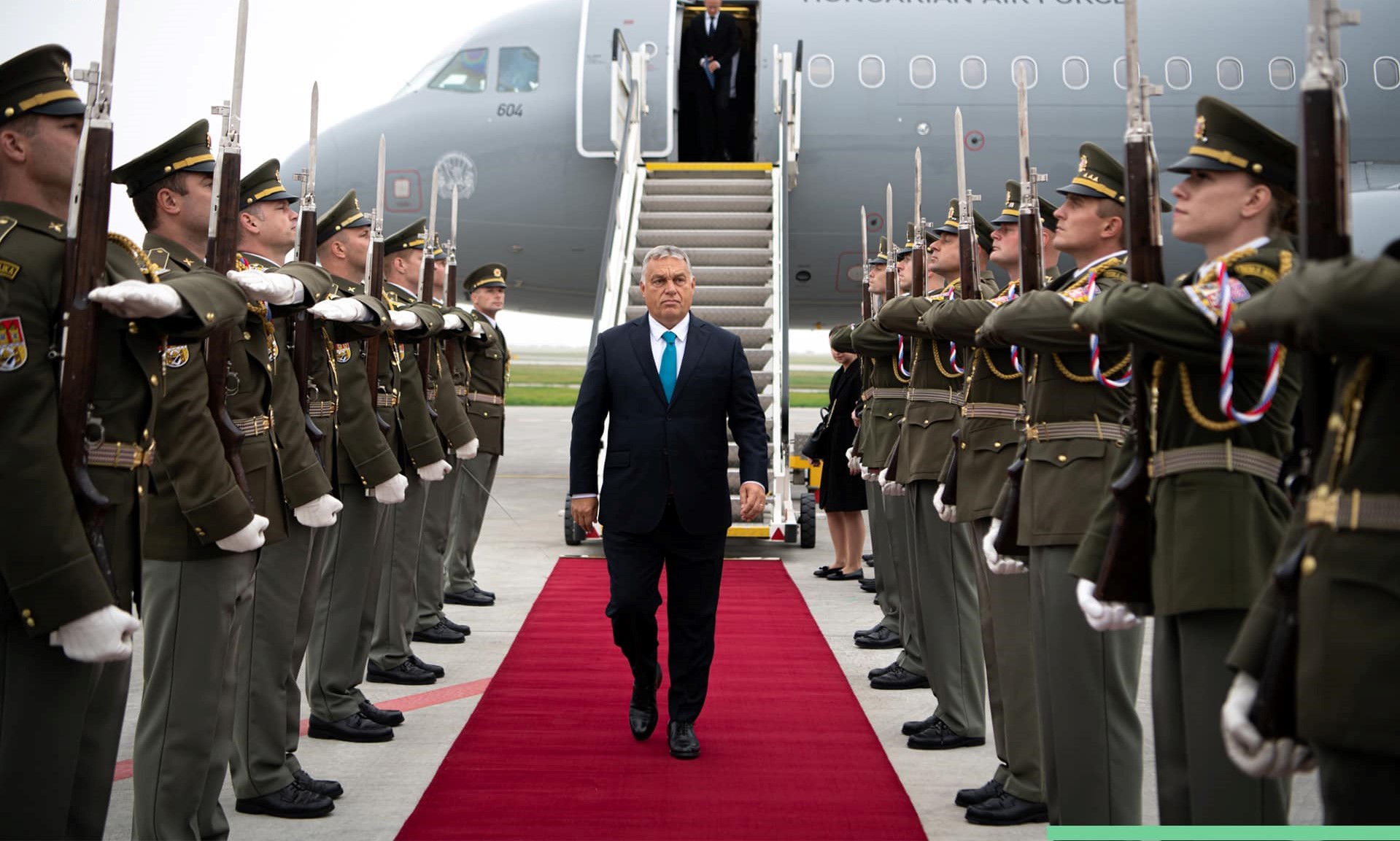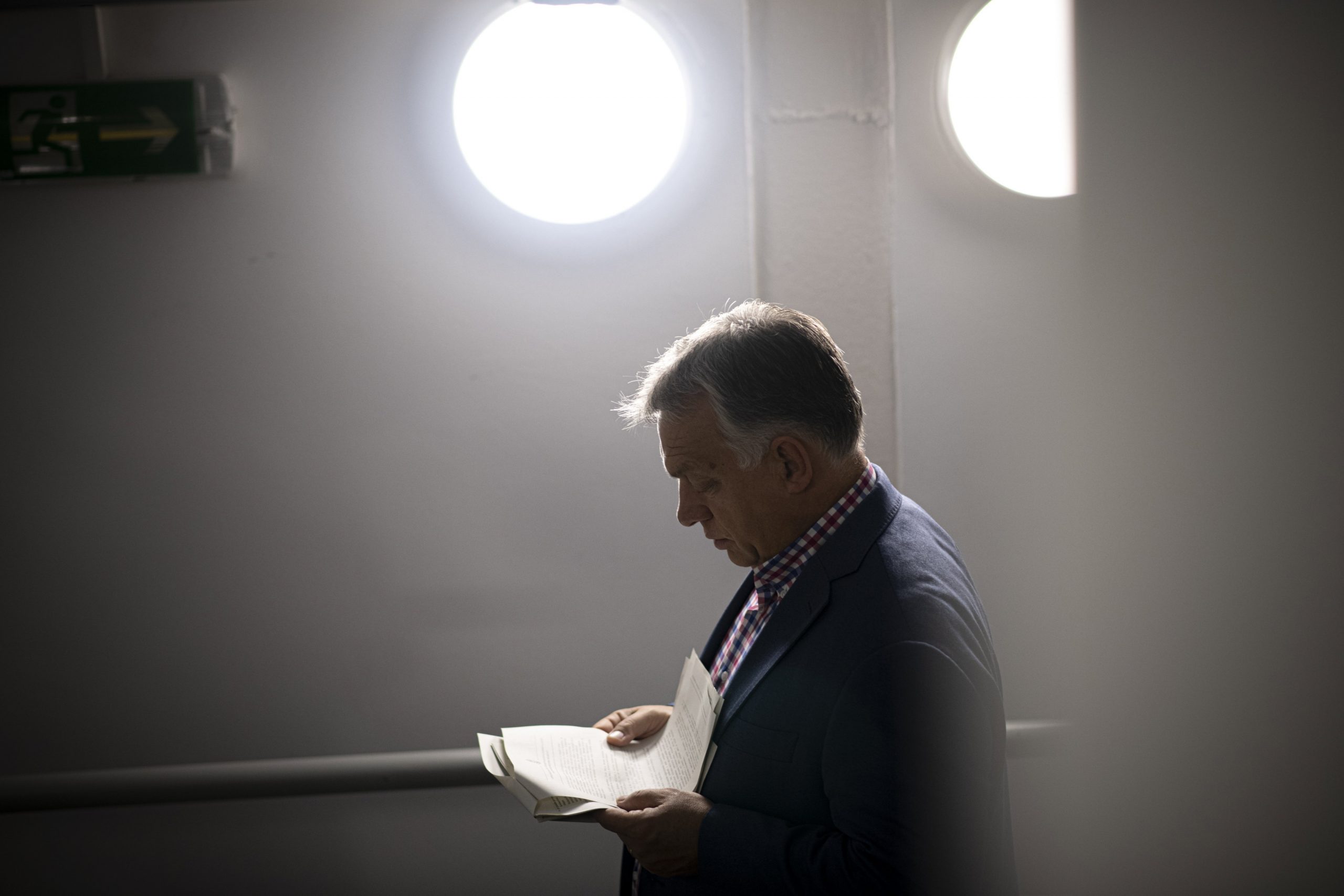
Orbán talked about migration, the 'LGBTQ activists' and Hungary's gas purchase agreement with Russia following a meeting with his Czech counterpart Andrej Babis.Continue reading

Central Europeans need more clout in European Union policymaking because the German-French axis has become outdated, Prime Minister Viktor Orbán said in an interview with Czech conservative daily Lidove Noviny.
The Central European region enjoys the highest economic growth rate in Europe, Orbán said in the interview published on Saturday, adding that without it Europe would fall into stagnation.
Conventional wisdom used to be that central Europe needed Westerners to function, he said. But the situation has turned on its head, he said, adding that it was no longer inconceivable that Europe’s future success would be shaped by Visegrad Group countries. “That’s what I call new reality in Europe,” he added.
The prime minister said Hungary must remain a part of the European Union since the common market was in the country’s interest. But central European interests now must be taken into greater consideration than before and in proportion to its economic performance, he said.
“Set against our real economic performance and weight, our influence in EU decision-making is disproportionately small, and this has to change,” Orbán said.
Commenting on the protection of traditional national identity, he said whoever managed to be more persistent should win. Issues of education, family policy, schooling and media regulation are all national competences which “nobody can take away from us”, he said.
Orbán said the “woke movement” in the West was increasing in popularity. The words used, he added, may be new but they followed “the same intellectual pattern as Marxism“.
Whenever there is a prolonged period of liberal governments that neglect culture, traditions, history and religion, Marxism grows more popular, Orbán said. “We, in central Europe, are vaccinated against Marxism.” The prime minister added that for Westerners, Marxism was an intellectual matter. “But central Europeans know that the Marxist basis for organising the economy and society results in dictatorship; Marxism and democracy cannot work together.”
Orbán said the West had grown out of Christianity, becoming inseparable from the enlightenment and rationality. That combination had resulted in the most competitive and successful form of life in the world, he said. “But it’s being lost now because we are giving up the historic foundations of Christianity.”
Orbán said he had hoped the EU accession of central European countries would add an anti-Communist, anti-Marxist and anti-Leninist culture to current pan-European culture. “But they did not want this.” Commenting on Hungary’s child protection laws, Orbán said Hungary had approved legislation stating that parents have the exclusive right over their children’s school and sex education, and LGBTQ activists or representatives of any other ideologies had no business in this area. Brussels wants to change this and their position is that LGBTQ activists must be allowed in schools, he added. Orban said the Hungarian legislation did not apply to adults above 18 years of age and only concerned the protection of children.
Orbán said French president Emmanuel Macron’s recent call for an independent EU foreign policy was an “exciting and interesting idea”. Hungary would be glad to participate in debates regarding strategic autonomy and sovereignty, he added.
He said existing differences between V4 members’ positions regarding the approach to Russia may be resolved. One of the most important tasks for the EU would be to give European security and military guarantees to Poland and the Baltic states, he added.
Commenting on disputes concerning gas supplies, Orbán said the reality was that Europe could not function without Russian gas.
Commenting on a recent visit by Pope Francis to Budapest, Orbán said people who believe in Christianity as a part of the future and not only of the past should join forces. There are many power groups that want to push the European continent to a post-Christian era, he said, which is especially popular among Brussels bureaucrats, he added. Since the Vatican is still the greatest Christian power in global politics, Orbán said he had humbly asked the Holy Father to help Christians survive.
Commenting on migration, he said double standards were operating in Europe. Referring to fences built by Hungary and the Baltic states, he said whenever a liberal government did something it was always good, but when a conservative one did the same it was always the opposite.
Orbán said the EU does not have to let in Afghan migrants because they should stay in their region and Europe should help the countries of that region cope with the burden of Afghan migrants. However, if Germany wants Hungary to open a corridor for Afghans to reach Germany, Hungary will be willing to do so, he added.
He said that after the big migration wave of 2015 acts of terrorism had intensified, adding that there was a connection between the two, and the latter always grew commensurate with the former.
Brussels, he said, was again attempting to pressurise member states into relocating migrants. “We’ll have to veto [this] again and again…” Orbán added.
The prime minister said Brussels was dragging its heels on its decision over EU recovery money, but the funds would arrive sooner or later. In the meantime, Hungary has raised a large amount of money, 4.5 billion euros, on the market with interest of below 1 percent, he said, adding this “good deal” would enable the country to implement developments needed for recovery. “Hungarian projects are up running without a cent from Brussels,” he said.
Commenting on the introduction of a 15% global corporate tax, Orbán said he did not support international decisions that interfered in the tax policies of a sovereign state.
Regarding domestic politics, he said the Fidesz government was locked in a battle with its predecessor to prevent the “regime” of Ferenc Gyurcsány from making a return. He said voters had not forgotten that period of the former Socialist-liberal prime minister. “This is why we won three times in a row and that’s why we’ll win a fourth time.”
Drawing a parallel between the political forces allied against himself and those against Babis, he said central European countries all faced a similar situation, insisting that whenever the “big powers” turned against a government in central Europe, they promoted forces that sympathised with them and served their interests.
Orbán accused the “Soros Network” of backing forces, including the “Brussels bureaucracy”, that were protesting against Czech and Hungarian sovereignty. “Today Brussels favours servile governments,” he said, “not leaders who fight for the independence of their own country.”
Regarding the Czechs and Hungarians, he said the two peoples were different in that Hungarians were more akin to Christian spiritual traditions and national sentiment — and this was reflected in the bearing of their leaders. “No one can argue, however, that Andrej Babis is one of Europe’s greatest fighters,” he added.
On the topic of the German elections, Orbán said Germany was experiencing “something novel”, and the big question now was whether or not the election outcome would lead to a predictable, reliable Germany led by a great chancellor.
featured image via MTI/PM’s Press Office/Benkő Vivien Cher